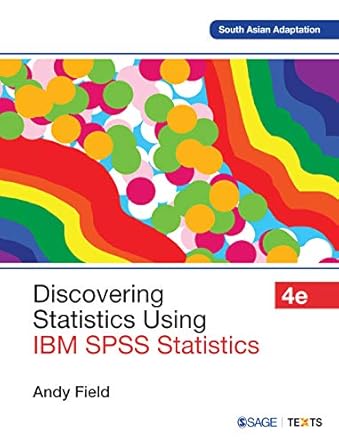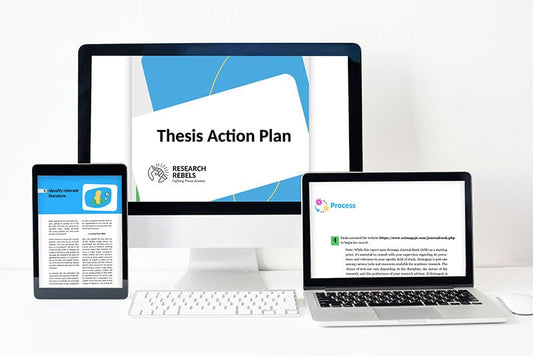How to write a research thesis

Writing a research thesis may seem like an overwhelming task, but with good planning and organisation, it is possible to carry it out successfully. This article offers a step-by-step guide to help you through the process, from selecting a topic to preparing for the defence. By following these tips, you will be able to develop a solid and well-structured thesis.
Key Conclusions
- Select a research topic that you are passionate about and is feasible.
- Formulate a clear and specific research question.
- Conduct a thorough review of the existing literature.
- Develop a detailed research plan with clear objectives and a timeline.
- Maintain academic integrity by correctly citing all your sources.
Selecting a Research Topic
Selecting a research topic is the first crucial step in writing a thesis. This process may seem overwhelming, but with proper guidance, you can find a topic that is not only interesting but also feasible and relevant to your field of study. Below are the essential steps to select an appropriate research topic.
Identifying Personal Interests
The first step is to identify your personal interests. Ask yourself which areas of your career have generated the most interest. A topic that you are passionate about will keep you motivated throughout the research process. Make a list of topics that intrigue you and that you believe are worth exploring further.
Assessing the Feasibility of the Topic
Once you have a list of potential topics, assess their feasibility. Consider whether the topic is too broad or too narrow. A good topic should be manageable within the time and resources available. Ensure that there is enough literature and resources available to support your research.
Consulting with Academic Advisors
Finally, consult with your academic advisors. They can offer you valuable insights and help you refine your topic. Present your ideas and seek their feedback. Their experience can guide you in choosing a topic that is both interesting and feasible.
Formulating the Research Question

Clear and Specific Definition
To formulate an effective research question, it is crucial that it is clear and specific. A well-defined question will guide your entire research process and help you stay focused. Avoid questions that are too broad or vague, as they can hinder data collection and analysis. Instead, opt for questions that are precise and well-defined.
Importance and Relevance of the Problem
The research question should address a problem that is important and relevant in your field of study. This not only justifies your research but also highlights its value. Ensure that your question addresses a gap in existing research or a topic that needs further exploration. This will make your work meaningful and contribute to existing knowledge.
Alignment with Research Objectives
It is essential that the research question aligns with the objectives of your study. The objectives should be specific and measurable, guiding you in the right direction to answer your research question. This ensures that your research is coherent and that each part of the study contributes to resolving the posed question.
Conducting a Literature Review
Searching for Relevant Sources
To conduct an effective literature review, it is essential to define a specific research question. Then, use academic databases, libraries, and online resources like Google Scholar to find relevant articles, books, and other documents. Don’t forget to include up-to-date and high-quality sources to ensure the validity of your review.
Critical Analysis of Existing Literature
Once you have gathered the sources, it is crucial to conduct a critical analysis. Evaluate the methodology, results, and conclusions of each study. Identify the strengths and weaknesses, and how each source contributes to your understanding of the topic. This analysis will allow you to build a solid foundation for your own research.
Identifying Gaps in Research
During your review, pay attention to the gaps in existing research. These gaps represent opportunities for new research. By identifying unexplored areas or unanswered questions, you can justify the relevance and necessity of your study. Additionally, this will help you align your research with academic and professional objectives.
Remember that a well-conducted literature review not only summarises what has been done but also critiques and synthesises the information to provide a clear and coherent view of the current state of knowledge in your field.
Developing a Research Plan
Developing a solid research plan is crucial for the success of your thesis. This plan will help you stay organised and ensure that you cover all necessary aspects of your research. Below are the essential steps to create an effective plan.
Formulating the Research Methodology
The research methodology is a crucial part of your thesis, as it defines how you will collect and analyse the data needed to answer your research question. A well-defined methodology ensures the validity and reliability of your results, allowing other researchers to replicate your study if necessary.
Writing the Thesis Introduction
The introduction of your thesis is a crucial section that establishes the context and relevance of your research. Here, you should clearly state your topic, goals, and objectives. Ensure that this part can clearly define what your work is about and why it is important.
Contextualising the Study
In this section, you should present the topic of your research and provide a general framework that allows the reader to understand the context in which your study is situated. This includes a brief description of the background and the justification of the topic. Why is this work relevant? What makes it significant in the field of study?
Presenting the Research Question
The research question should be clear and specific. This question will guide all your work and should align with the objectives of your research. Ensure that the question is precise enough to be addressed within the scope of your thesis.
Overall Structure of the Thesis
Finally, provide an overview of the structure of your thesis. This includes a brief summary of each chapter or main section. This guide will help the reader navigate your work and understand how each part contributes to answering your research question.
Organising and Writing the Body of the Thesis

The organisation and writing of the body of the thesis is a crucial stage in the development of your research work. Here are the essential elements you should consider to structure this section effectively.
Structure of the Theoretical Framework
The theoretical framework is the foundation upon which your research is based. You should organise the relevant theories and concepts coherently and logically. Ensure that each paragraph has a main idea supported by other secondary ideas. Use connectors such as "moreover", "therefore", and "finally" to link the paragraphs and maintain the cohesion of the text.
Presentation of Results
In this section, you should present the results of your research clearly and concisely. Tables are a useful tool to organise and display quantitative data. Remember that tables should be concise and should be interpreted in isolation. The design of the table should be logical and easy for readers to understand.
Discussion and Analysis of Findings
The discussion is the space where you interpret the results obtained. Here you should relate your findings to the existing literature and discuss their relevance. It is important to identify the implications of your results and how they contribute to knowledge in your area of study. Additionally, consider all possible explanations for your results and discuss them critically.
Reviewing and Editing the Draft
The review and editing of your thesis draft is a crucial stage to ensure the quality and coherence of your final work. This process involves not only correcting grammatical errors but also improving the structure and clarity of the content.
Reviewing Coherence and Cohesion
It is essential that your thesis has a logical and fluid structure. Ensure that each section and paragraph connect coherently. Check that the main ideas are clearly presented and that the arguments develop logically. Use appropriate connectors to facilitate the reading and understanding of the text.
Correction of Grammatical and Stylistic Errors
Correcting grammatical and stylistic errors is essential to present a professional piece of work. Use spelling and grammar correction tools, but do not rely solely on them. Read your work aloud to identify errors that may have gone unnoticed. Additionally, ensure that you maintain an academic tone and avoid using colloquial language.
Verification of Citations and References
It is vital that all citations and references in your thesis are correctly formatted and accurate. Check that each citation in the text has its corresponding entry in the bibliography and that you follow the citation style required by your institution. This not only avoids plagiarism but also strengthens the credibility of your research.
Preparing for the Thesis Defence
The thesis defence is a crucial moment in your academic career. Proper preparation will allow you to present your work confidently and respond to the questions from the evaluation committee effectively. Below are some essential steps for successful preparation.
Creating an Effective Presentation
The first step is to create a clear and concise presentation. Your slides should highlight the key points of your research, including your research questions, methodology, findings, and conclusions. Practice your presentation several times to ensure that you feel comfortable with the material and can present it confidently.
Anticipating Questions from the Committee
It is essential to anticipate the questions that the committee may ask. Review your thesis thoroughly and think about possible weaknesses or areas that may need further explanation. Being familiar with all the information included in your thesis will help you clarify and argue about all the material in your project.
Practicing the Presentation
Practice your presentation in front of friends or family. This will help you get used to speaking in front of an audience and receive feedback on your performance. Work on your pace, tone, and body language to ensure that you present yourself as someone confident and knowledgeable. Remember, the goal is to communicate your research effectively and convincingly.
Maintaining Academic Integrity
Maintaining academic integrity is fundamental in writing a thesis. This commitment not only reflects your personal ethics but also ensures the credibility and validity of your work. Below are some key aspects to maintain academic integrity during your research.
Maintaining academic integrity is essential for your academic success. If you feel overwhelmed with your thesis, you are not alone. On our website, we offer a step-by-step action plan to help you overcome these challenges. Visit us and discover how we can help you achieve your academic goals!
Conclusion
Writing a research thesis is a process that requires dedication, organisation, and a clear focus. Throughout this article, we have explored the essential steps to carry out successful research, from choosing a topic to the final writing. It is crucial to remember that each stage of the process is important and contributes to the final outcome. Proper planning, time management, and consulting with advisors are key to overcoming any challenges that may arise. In the end, the effort invested culminates not only in an academic document but also enriches the knowledge and skills of the researcher. Best of luck on your academic journey!
Frequently Asked Questions
What is a research thesis?
A research thesis is an extensive academic work that presents a detailed study on a specific topic. Its aim is to contribute to the existing knowledge in that area.
How do I choose a good topic for my thesis?
To choose a good topic, think about your personal interests and the topics you are passionate about. It is also helpful to consult with your academic advisors and review the existing literature to identify gaps in research.
What should I include in the introduction of my thesis?
In the introduction, you should contextualise your study, present your research question, and provide an overview of the structure of your thesis.
How do I conduct a literature review?
To conduct a literature review, search for relevant sources, critically analyse the existing literature, and identify gaps in the research that your study could fill.
What is a research methodology?
The research methodology is the set of methods and techniques you will use to collect and analyse data in your study. It is important to justify why you have chosen those methods.
How do I organise the body of my thesis?
The body of your thesis should include the theoretical framework, presentation of results, and discussion and analysis of findings. Ensure that each section flows logically into the next.
What should I review in the draft of my thesis?
When reviewing your draft, check the coherence and cohesion of the text, correct grammatical and stylistic errors, and ensure that all citations and references are correct.
How do I prepare for my thesis defence?
To prepare for your thesis defence, create an effective presentation, anticipate possible questions from the committee, and practice your presentation several times.
How to write a research thesis

Writing a research thesis may seem like an overwhelming task, but with good planning and organisation, it is possible to carry it out successfully. This article offers a step-by-step guide to help you through the process, from selecting a topic to preparing for the defence. By following these tips, you will be able to develop a solid and well-structured thesis.
Key Conclusions
- Select a research topic that you are passionate about and is feasible.
- Formulate a clear and specific research question.
- Conduct a thorough review of the existing literature.
- Develop a detailed research plan with clear objectives and a timeline.
- Maintain academic integrity by correctly citing all your sources.
Selecting a Research Topic
Selecting a research topic is the first crucial step in writing a thesis. This process may seem overwhelming, but with proper guidance, you can find a topic that is not only interesting but also feasible and relevant to your field of study. Below are the essential steps to select an appropriate research topic.
Identifying Personal Interests
The first step is to identify your personal interests. Ask yourself which areas of your career have generated the most interest. A topic that you are passionate about will keep you motivated throughout the research process. Make a list of topics that intrigue you and that you believe are worth exploring further.
Assessing the Feasibility of the Topic
Once you have a list of potential topics, assess their feasibility. Consider whether the topic is too broad or too narrow. A good topic should be manageable within the time and resources available. Ensure that there is enough literature and resources available to support your research.
Consulting with Academic Advisors
Finally, consult with your academic advisors. They can offer you valuable insights and help you refine your topic. Present your ideas and seek their feedback. Their experience can guide you in choosing a topic that is both interesting and feasible.
Formulating the Research Question

Clear and Specific Definition
To formulate an effective research question, it is crucial that it is clear and specific. A well-defined question will guide your entire research process and help you stay focused. Avoid questions that are too broad or vague, as they can hinder data collection and analysis. Instead, opt for questions that are precise and well-defined.
Importance and Relevance of the Problem
The research question should address a problem that is important and relevant in your field of study. This not only justifies your research but also highlights its value. Ensure that your question addresses a gap in existing research or a topic that needs further exploration. This will make your work meaningful and contribute to existing knowledge.
Alignment with Research Objectives
It is essential that the research question aligns with the objectives of your study. The objectives should be specific and measurable, guiding you in the right direction to answer your research question. This ensures that your research is coherent and that each part of the study contributes to resolving the posed question.
Conducting a Literature Review
Searching for Relevant Sources
To conduct an effective literature review, it is essential to define a specific research question. Then, use academic databases, libraries, and online resources like Google Scholar to find relevant articles, books, and other documents. Don’t forget to include up-to-date and high-quality sources to ensure the validity of your review.
Critical Analysis of Existing Literature
Once you have gathered the sources, it is crucial to conduct a critical analysis. Evaluate the methodology, results, and conclusions of each study. Identify the strengths and weaknesses, and how each source contributes to your understanding of the topic. This analysis will allow you to build a solid foundation for your own research.
Identifying Gaps in Research
During your review, pay attention to the gaps in existing research. These gaps represent opportunities for new research. By identifying unexplored areas or unanswered questions, you can justify the relevance and necessity of your study. Additionally, this will help you align your research with academic and professional objectives.
Remember that a well-conducted literature review not only summarises what has been done but also critiques and synthesises the information to provide a clear and coherent view of the current state of knowledge in your field.
Developing a Research Plan
Developing a solid research plan is crucial for the success of your thesis. This plan will help you stay organised and ensure that you cover all necessary aspects of your research. Below are the essential steps to create an effective plan.
Formulating the Research Methodology
The research methodology is a crucial part of your thesis, as it defines how you will collect and analyse the data needed to answer your research question. A well-defined methodology ensures the validity and reliability of your results, allowing other researchers to replicate your study if necessary.
Writing the Thesis Introduction
The introduction of your thesis is a crucial section that establishes the context and relevance of your research. Here, you should clearly state your topic, goals, and objectives. Ensure that this part can clearly define what your work is about and why it is important.
Contextualising the Study
In this section, you should present the topic of your research and provide a general framework that allows the reader to understand the context in which your study is situated. This includes a brief description of the background and the justification of the topic. Why is this work relevant? What makes it significant in the field of study?
Presenting the Research Question
The research question should be clear and specific. This question will guide all your work and should align with the objectives of your research. Ensure that the question is precise enough to be addressed within the scope of your thesis.
Overall Structure of the Thesis
Finally, provide an overview of the structure of your thesis. This includes a brief summary of each chapter or main section. This guide will help the reader navigate your work and understand how each part contributes to answering your research question.
Organising and Writing the Body of the Thesis

The organisation and writing of the body of the thesis is a crucial stage in the development of your research work. Here are the essential elements you should consider to structure this section effectively.
Structure of the Theoretical Framework
The theoretical framework is the foundation upon which your research is based. You should organise the relevant theories and concepts coherently and logically. Ensure that each paragraph has a main idea supported by other secondary ideas. Use connectors such as "moreover", "therefore", and "finally" to link the paragraphs and maintain the cohesion of the text.
Presentation of Results
In this section, you should present the results of your research clearly and concisely. Tables are a useful tool to organise and display quantitative data. Remember that tables should be concise and should be interpreted in isolation. The design of the table should be logical and easy for readers to understand.
Discussion and Analysis of Findings
The discussion is the space where you interpret the results obtained. Here you should relate your findings to the existing literature and discuss their relevance. It is important to identify the implications of your results and how they contribute to knowledge in your area of study. Additionally, consider all possible explanations for your results and discuss them critically.
Reviewing and Editing the Draft
The review and editing of your thesis draft is a crucial stage to ensure the quality and coherence of your final work. This process involves not only correcting grammatical errors but also improving the structure and clarity of the content.
Reviewing Coherence and Cohesion
It is essential that your thesis has a logical and fluid structure. Ensure that each section and paragraph connect coherently. Check that the main ideas are clearly presented and that the arguments develop logically. Use appropriate connectors to facilitate the reading and understanding of the text.
Correction of Grammatical and Stylistic Errors
Correcting grammatical and stylistic errors is essential to present a professional piece of work. Use spelling and grammar correction tools, but do not rely solely on them. Read your work aloud to identify errors that may have gone unnoticed. Additionally, ensure that you maintain an academic tone and avoid using colloquial language.
Verification of Citations and References
It is vital that all citations and references in your thesis are correctly formatted and accurate. Check that each citation in the text has its corresponding entry in the bibliography and that you follow the citation style required by your institution. This not only avoids plagiarism but also strengthens the credibility of your research.
Preparing for the Thesis Defence
The thesis defence is a crucial moment in your academic career. Proper preparation will allow you to present your work confidently and respond to the questions from the evaluation committee effectively. Below are some essential steps for successful preparation.
Creating an Effective Presentation
The first step is to create a clear and concise presentation. Your slides should highlight the key points of your research, including your research questions, methodology, findings, and conclusions. Practice your presentation several times to ensure that you feel comfortable with the material and can present it confidently.
Anticipating Questions from the Committee
It is essential to anticipate the questions that the committee may ask. Review your thesis thoroughly and think about possible weaknesses or areas that may need further explanation. Being familiar with all the information included in your thesis will help you clarify and argue about all the material in your project.
Practicing the Presentation
Practice your presentation in front of friends or family. This will help you get used to speaking in front of an audience and receive feedback on your performance. Work on your pace, tone, and body language to ensure that you present yourself as someone confident and knowledgeable. Remember, the goal is to communicate your research effectively and convincingly.
Maintaining Academic Integrity
Maintaining academic integrity is fundamental in writing a thesis. This commitment not only reflects your personal ethics but also ensures the credibility and validity of your work. Below are some key aspects to maintain academic integrity during your research.
Maintaining academic integrity is essential for your academic success. If you feel overwhelmed with your thesis, you are not alone. On our website, we offer a step-by-step action plan to help you overcome these challenges. Visit us and discover how we can help you achieve your academic goals!
Conclusion
Writing a research thesis is a process that requires dedication, organisation, and a clear focus. Throughout this article, we have explored the essential steps to carry out successful research, from choosing a topic to the final writing. It is crucial to remember that each stage of the process is important and contributes to the final outcome. Proper planning, time management, and consulting with advisors are key to overcoming any challenges that may arise. In the end, the effort invested culminates not only in an academic document but also enriches the knowledge and skills of the researcher. Best of luck on your academic journey!
Frequently Asked Questions
What is a research thesis?
A research thesis is an extensive academic work that presents a detailed study on a specific topic. Its aim is to contribute to the existing knowledge in that area.
How do I choose a good topic for my thesis?
To choose a good topic, think about your personal interests and the topics you are passionate about. It is also helpful to consult with your academic advisors and review the existing literature to identify gaps in research.
What should I include in the introduction of my thesis?
In the introduction, you should contextualise your study, present your research question, and provide an overview of the structure of your thesis.
How do I conduct a literature review?
To conduct a literature review, search for relevant sources, critically analyse the existing literature, and identify gaps in the research that your study could fill.
What is a research methodology?
The research methodology is the set of methods and techniques you will use to collect and analyse data in your study. It is important to justify why you have chosen those methods.
How do I organise the body of my thesis?
The body of your thesis should include the theoretical framework, presentation of results, and discussion and analysis of findings. Ensure that each section flows logically into the next.
What should I review in the draft of my thesis?
When reviewing your draft, check the coherence and cohesion of the text, correct grammatical and stylistic errors, and ensure that all citations and references are correct.
How do I prepare for my thesis defence?
To prepare for your thesis defence, create an effective presentation, anticipate possible questions from the committee, and practice your presentation several times.
How to write a research thesis

Writing a research thesis may seem like an overwhelming task, but with good planning and organisation, it is possible to carry it out successfully. This article offers a step-by-step guide to help you through the process, from selecting a topic to preparing for the defence. By following these tips, you will be able to develop a solid and well-structured thesis.
Key Conclusions
- Select a research topic that you are passionate about and is feasible.
- Formulate a clear and specific research question.
- Conduct a thorough review of the existing literature.
- Develop a detailed research plan with clear objectives and a timeline.
- Maintain academic integrity by correctly citing all your sources.
Selecting a Research Topic
Selecting a research topic is the first crucial step in writing a thesis. This process may seem overwhelming, but with proper guidance, you can find a topic that is not only interesting but also feasible and relevant to your field of study. Below are the essential steps to select an appropriate research topic.
Identifying Personal Interests
The first step is to identify your personal interests. Ask yourself which areas of your career have generated the most interest. A topic that you are passionate about will keep you motivated throughout the research process. Make a list of topics that intrigue you and that you believe are worth exploring further.
Assessing the Feasibility of the Topic
Once you have a list of potential topics, assess their feasibility. Consider whether the topic is too broad or too narrow. A good topic should be manageable within the time and resources available. Ensure that there is enough literature and resources available to support your research.
Consulting with Academic Advisors
Finally, consult with your academic advisors. They can offer you valuable insights and help you refine your topic. Present your ideas and seek their feedback. Their experience can guide you in choosing a topic that is both interesting and feasible.
Formulating the Research Question

Clear and Specific Definition
To formulate an effective research question, it is crucial that it is clear and specific. A well-defined question will guide your entire research process and help you stay focused. Avoid questions that are too broad or vague, as they can hinder data collection and analysis. Instead, opt for questions that are precise and well-defined.
Importance and Relevance of the Problem
The research question should address a problem that is important and relevant in your field of study. This not only justifies your research but also highlights its value. Ensure that your question addresses a gap in existing research or a topic that needs further exploration. This will make your work meaningful and contribute to existing knowledge.
Alignment with Research Objectives
It is essential that the research question aligns with the objectives of your study. The objectives should be specific and measurable, guiding you in the right direction to answer your research question. This ensures that your research is coherent and that each part of the study contributes to resolving the posed question.
Conducting a Literature Review
Searching for Relevant Sources
To conduct an effective literature review, it is essential to define a specific research question. Then, use academic databases, libraries, and online resources like Google Scholar to find relevant articles, books, and other documents. Don’t forget to include up-to-date and high-quality sources to ensure the validity of your review.
Critical Analysis of Existing Literature
Once you have gathered the sources, it is crucial to conduct a critical analysis. Evaluate the methodology, results, and conclusions of each study. Identify the strengths and weaknesses, and how each source contributes to your understanding of the topic. This analysis will allow you to build a solid foundation for your own research.
Identifying Gaps in Research
During your review, pay attention to the gaps in existing research. These gaps represent opportunities for new research. By identifying unexplored areas or unanswered questions, you can justify the relevance and necessity of your study. Additionally, this will help you align your research with academic and professional objectives.
Remember that a well-conducted literature review not only summarises what has been done but also critiques and synthesises the information to provide a clear and coherent view of the current state of knowledge in your field.
Developing a Research Plan
Developing a solid research plan is crucial for the success of your thesis. This plan will help you stay organised and ensure that you cover all necessary aspects of your research. Below are the essential steps to create an effective plan.
Formulating the Research Methodology
The research methodology is a crucial part of your thesis, as it defines how you will collect and analyse the data needed to answer your research question. A well-defined methodology ensures the validity and reliability of your results, allowing other researchers to replicate your study if necessary.
Writing the Thesis Introduction
The introduction of your thesis is a crucial section that establishes the context and relevance of your research. Here, you should clearly state your topic, goals, and objectives. Ensure that this part can clearly define what your work is about and why it is important.
Contextualising the Study
In this section, you should present the topic of your research and provide a general framework that allows the reader to understand the context in which your study is situated. This includes a brief description of the background and the justification of the topic. Why is this work relevant? What makes it significant in the field of study?
Presenting the Research Question
The research question should be clear and specific. This question will guide all your work and should align with the objectives of your research. Ensure that the question is precise enough to be addressed within the scope of your thesis.
Overall Structure of the Thesis
Finally, provide an overview of the structure of your thesis. This includes a brief summary of each chapter or main section. This guide will help the reader navigate your work and understand how each part contributes to answering your research question.
Organising and Writing the Body of the Thesis

The organisation and writing of the body of the thesis is a crucial stage in the development of your research work. Here are the essential elements you should consider to structure this section effectively.
Structure of the Theoretical Framework
The theoretical framework is the foundation upon which your research is based. You should organise the relevant theories and concepts coherently and logically. Ensure that each paragraph has a main idea supported by other secondary ideas. Use connectors such as "moreover", "therefore", and "finally" to link the paragraphs and maintain the cohesion of the text.
Presentation of Results
In this section, you should present the results of your research clearly and concisely. Tables are a useful tool to organise and display quantitative data. Remember that tables should be concise and should be interpreted in isolation. The design of the table should be logical and easy for readers to understand.
Discussion and Analysis of Findings
The discussion is the space where you interpret the results obtained. Here you should relate your findings to the existing literature and discuss their relevance. It is important to identify the implications of your results and how they contribute to knowledge in your area of study. Additionally, consider all possible explanations for your results and discuss them critically.
Reviewing and Editing the Draft
The review and editing of your thesis draft is a crucial stage to ensure the quality and coherence of your final work. This process involves not only correcting grammatical errors but also improving the structure and clarity of the content.
Reviewing Coherence and Cohesion
It is essential that your thesis has a logical and fluid structure. Ensure that each section and paragraph connect coherently. Check that the main ideas are clearly presented and that the arguments develop logically. Use appropriate connectors to facilitate the reading and understanding of the text.
Correction of Grammatical and Stylistic Errors
Correcting grammatical and stylistic errors is essential to present a professional piece of work. Use spelling and grammar correction tools, but do not rely solely on them. Read your work aloud to identify errors that may have gone unnoticed. Additionally, ensure that you maintain an academic tone and avoid using colloquial language.
Verification of Citations and References
It is vital that all citations and references in your thesis are correctly formatted and accurate. Check that each citation in the text has its corresponding entry in the bibliography and that you follow the citation style required by your institution. This not only avoids plagiarism but also strengthens the credibility of your research.
Preparing for the Thesis Defence
The thesis defence is a crucial moment in your academic career. Proper preparation will allow you to present your work confidently and respond to the questions from the evaluation committee effectively. Below are some essential steps for successful preparation.
Creating an Effective Presentation
The first step is to create a clear and concise presentation. Your slides should highlight the key points of your research, including your research questions, methodology, findings, and conclusions. Practice your presentation several times to ensure that you feel comfortable with the material and can present it confidently.
Anticipating Questions from the Committee
It is essential to anticipate the questions that the committee may ask. Review your thesis thoroughly and think about possible weaknesses or areas that may need further explanation. Being familiar with all the information included in your thesis will help you clarify and argue about all the material in your project.
Practicing the Presentation
Practice your presentation in front of friends or family. This will help you get used to speaking in front of an audience and receive feedback on your performance. Work on your pace, tone, and body language to ensure that you present yourself as someone confident and knowledgeable. Remember, the goal is to communicate your research effectively and convincingly.
Maintaining Academic Integrity
Maintaining academic integrity is fundamental in writing a thesis. This commitment not only reflects your personal ethics but also ensures the credibility and validity of your work. Below are some key aspects to maintain academic integrity during your research.
Maintaining academic integrity is essential for your academic success. If you feel overwhelmed with your thesis, you are not alone. On our website, we offer a step-by-step action plan to help you overcome these challenges. Visit us and discover how we can help you achieve your academic goals!
Conclusion
Writing a research thesis is a process that requires dedication, organisation, and a clear focus. Throughout this article, we have explored the essential steps to carry out successful research, from choosing a topic to the final writing. It is crucial to remember that each stage of the process is important and contributes to the final outcome. Proper planning, time management, and consulting with advisors are key to overcoming any challenges that may arise. In the end, the effort invested culminates not only in an academic document but also enriches the knowledge and skills of the researcher. Best of luck on your academic journey!
Frequently Asked Questions
What is a research thesis?
A research thesis is an extensive academic work that presents a detailed study on a specific topic. Its aim is to contribute to the existing knowledge in that area.
How do I choose a good topic for my thesis?
To choose a good topic, think about your personal interests and the topics you are passionate about. It is also helpful to consult with your academic advisors and review the existing literature to identify gaps in research.
What should I include in the introduction of my thesis?
In the introduction, you should contextualise your study, present your research question, and provide an overview of the structure of your thesis.
How do I conduct a literature review?
To conduct a literature review, search for relevant sources, critically analyse the existing literature, and identify gaps in the research that your study could fill.
What is a research methodology?
The research methodology is the set of methods and techniques you will use to collect and analyse data in your study. It is important to justify why you have chosen those methods.
How do I organise the body of my thesis?
The body of your thesis should include the theoretical framework, presentation of results, and discussion and analysis of findings. Ensure that each section flows logically into the next.
What should I review in the draft of my thesis?
When reviewing your draft, check the coherence and cohesion of the text, correct grammatical and stylistic errors, and ensure that all citations and references are correct.
How do I prepare for my thesis defence?
To prepare for your thesis defence, create an effective presentation, anticipate possible questions from the committee, and practice your presentation several times.

















